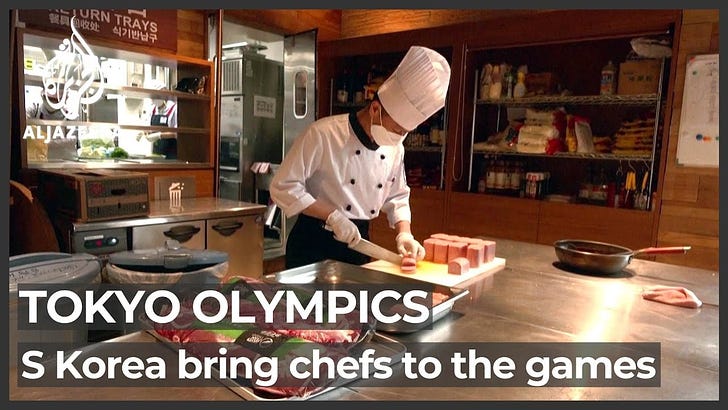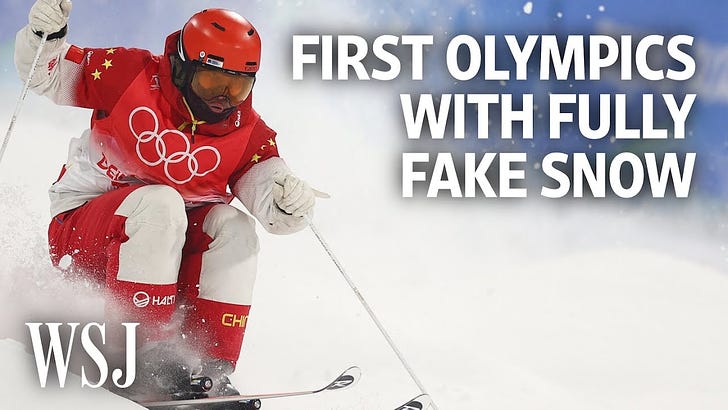1) How did Cameroon-born boxer Cindy Ngamba make history with a bronze medal in Paris?
First medallist from the Refugee Olympic Team. The International Olympic Committee announced the creation of an Olympic team made up of refugees in 2015 and they competed for the first time in Rio De Janeiro in 2016.
2) Connect Botswana, Saint Lucia, Dominica and Guatemala in the context of the Paris Olympics?
All four countries won their first Olympic gold medal in 2024. Letsile Tebogo won the men’s 200m race for Botswana. Julien Alfred sprinted to gold in the women’s 100m for Saint Lucia, the tiny Caribbean nation’s first-ever Olympic medal. Another Caribbean nation, Dominica, opened its account in the Olympics with Thea LaFond’s gold medal in women’s triple jump. Adriana Ruano became the first Olympic gold medallist from Guatemala, winning the women’s trap in shooting.
3) This player was part of a gold medal winning Olympic team a year-and-a-half after being released from Russian captivity in a prisoner swap deal. Who and which sport?
Brittney Griner was part of USA’s victorious women’s basketball team. She was arrested in Russia on drug charges in February 2022, shortly before Russia invaded Ukraine. She was released in a prisoner swap deal in exchange for arms dealer Viktor Bout.
4) Which country’s Olympic delegation threw flowers into the Seine river during the opening ceremony to honour the victims of a 1961 massacre?
Algeria. In 1961 police in Paris killed more than 100 protesters demanding independence for Algeria. Some of them were thrown into the river Seine. Algeria became independent in 1962. More about the massacre here and here. In 2021 Emmanuel Macron became the first French President to attend a memorial for those killed in the massacre.
5) After drawing a blank in Paris, which country remains the most populous nation yet to win an Olympic medal?
6) This country, one of the most populous in the world won Olympic gold medals outside badminton for the first time in 2024 (its eight gold medals until Paris were all in badminton). The two gold medals in Paris were in sport climbing and weightlifting. Which country?
Indonesia. The country won gold in both men’s and women’s singles when badminton was introduced at the Olympics in 1992. I had a question on Indonesia and badminton in my earlier quiz on Sport and Dominance.
Answers: Sport and dominance
1) Just like Egyptians, the first natives in this country to pick up squash were ball boys and service staff in British military officers’ clubs. From the 1950s this country dominated men’s squash until the 1990s. All of its seven British Open champions were from the same region of the country (they had their roots in the same village near a major city)…
7) Devised by Pierre de Coubertin, founder of the modern Olympic Games, modern pentathlon has been a regular feature of the event since 1912. The sport will undergo a major change for the next Olympics in 2028. What is being replaced?
Horse-riding will be replaced by obstacle course. More here and here. The other four events that make up the modern pentathlon are fencing, swimming, running and shooting.
8) This high-profile sporting personality was one of Greece’s flag-bearers during the Paris opening ceremony. He was an undocumented immigrant in Greece until the age of 19. Who?
Giannis Antetokounmpo. The Greek basketball star of Nigerian heritage was the NBA’s Most Valuable Player in 2018-19 and 2019–20. He inspired the Milwaukee Bucks to the NBA championship in 2021. Antetokounmpo was stateless without a passport in Greece when he was spotted by NBA talent scouts. He was given Greek citizenship just in time to travel to the U.S. for the NBA draft. More here, here and here.
9) Which country had announced plans to hold a World Friendship Games in September only to postpone it to unspecified dates in 2025? The International Olympic Committee strongly criticised what was seen as a bid to rival the Olympics.
Russia. The Soviet Union along with allies in the Communist bloc had organised a Friendship Games in 1984 to counter the Los Angeles Olympics, which almost all of the bloc boycotted. Events were held across nine countries from July to September. The hosts were Bulgaria, Cuba, Czechoslovakia, East Germany, Hungary, Mongolia, North Korea, Poland and the Soviet Union. A small number of western athletes did take part.
One European member of the Warsaw Pact disregarded the Soviet boycott call and ended up with its best-ever Olympic performance in Los Angeles. You can read the details in the quiz below on ‘How Olympics and Politics Intersect’, which I had posted in 2021. It also has more about GANEFO, a failed attempt in the 1960s to build an alternative to the Olympics.
Answers: How Olympics and Politics Intersect
Politics is never far away from the Olympics, from increasing concerns about the costs of hosting the mammoth event to sporting defections, the latest in Tokyo being Belarus’ Kristina Timanovskaya. China and Taiwan faced off in badminton at a time of heightened political
10) Until Paris, this country had won a total of three Olympics gold medals, all in men’s hockey. It won a fourth in 2024 with the top spot in a track and field event. Which country?
Pakistan. Arshad Nadeem won the gold medal in men’s javelin, while India’s defending champion Neeraj Chopra had to settle for silver. Nadeem and Chopra are the only two Olympic medallists in track and field from South Asia.
Pakistan won the gold medal in men’s hockey for the first time in 1960, ending India’s Olympic winning streak that had begun in 1928. India triumphed again in 1964 but a long period of decline followed from the 1970s. Its eighth and last gold medal was in the 1980 Moscow Olympics, which Pakistan boycotted. Indian hockey is now showing firm signs of revival, with back-to-back bronze medals in Tokyo and Paris.
While Indian hockey declined, Pakistan continued to thrive, humiliating India in the 1982 Asian Games final in Delhi and clinching gold in the 1984 Olympics. Its team took bronze in 1992, its last Olympic medal and won the World Cup in 1994. Since then the decline has been precipitous and Pakistan did not qualify for the last three Olympics. At the Asian Games last year, India had its biggest victory over Pakistan, shaking off the ghosts of 1982.
11) One Olympic event was held more than 15,000 kilometres away from Paris. Which event and where?
Surfing in Teahupo'o, Tahiti, French Polynesia in the Pacific. More here, here, here and here.
12) China’s state broadcaster cut the feed during parts of the men’s badminton doubles final and did not show the medal ceremony. Why?
The winning pair was Lee Yang and Wang Chi-lin from Taiwan (which competes under the name Chinese Taipei at the Olympics). They defeated China’s Liang Weikeng and Wang Chang in the final. Lee Yang and Wang Chi-lin had won in Tokyo as well, defeating another pair from China. More about how Taiwan began competing in international sporting events as ‘Chinese Taipei’ in my earlier quiz on the Winter Olympics.
Answers: A Political History of the Winter Olympics
The Beijing Winter Olympics has come to an end amid strict coronavirus restrictions and a diplomatic boycott by several Western nations over human rights concerns surrounding Xinjiang. India’s diplomats also stayed away as the hosts honoured a military commander involved in the worst border clash between the two sides in decades. More
I had covered China-Taiwan tensions in detail in my quiz on the island’s importance here.
13) Whose performance at the opening ceremony gave prominence to the French slang Verlan?
Aya Nakamura, the Mali-born French singer. The far-right in France had objected to her performing at the opening ceremony. President Macron backed Nakamura ahead of the Olympics.



